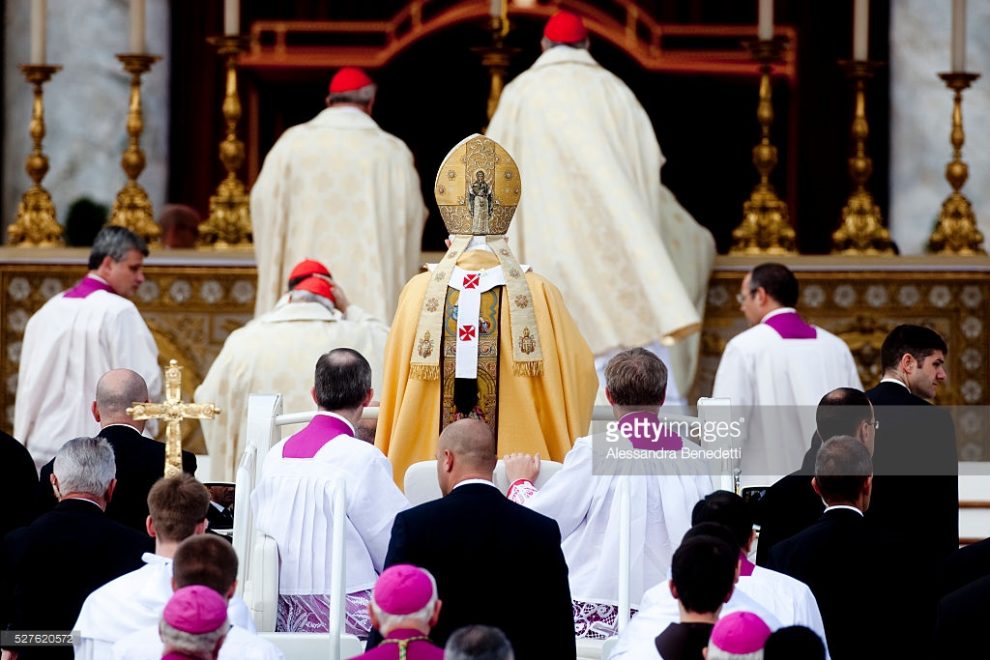Oct. 12, 2016
My first close personal contact with the Ecumenical Patriarch Bartholomew was granted in the year 2002 on the way to the World Meeting of Prayer in Assisi. It was Saint Pope John Paul II’s idea to travel together by train to Assisi in order to express our inner journey alongside the external trip. For me it was a joy to learn that the patriarch had invited me to sit with him for a while in the same compartment and, in this way, to become personally closer.

For me, this meeting—along the way—is more than an accidental expression for the state of the faith. I was also immediately moved by the personal openness and warmth of the patriarch. It required no great effort for us to become close to one another. His inner openness and simplicity immediately brought with it comfortable intimacy. Naturally, what also contributed to this feeling was the fact that he speaks all of the major European languages, not only French and English, but also Italian and German. Even more surprising for me was the fact that he has mastery of Latin and knows how to express himself in that language. If one can converse with someone in one’s own language, there is an immediacy of speaking heart to heart and thought to thought. The patriarch has studied not only in the realm of the Orthodox Church, but also in Munich and Rome. To the diversity of languages there also corresponds, in the process, a diversity of cultures in which he moves. In this way, from its very depths, his thought is a journey with others and toward others, which certainly does not degenerate into a lack of direction, in which “being on the road” would simply lead nowhere. Deep rootedness in faith in Jesus Christ, the Son of the living God and our Redeemer, does not stand in the way of openness to the other because Jesus Christ bears in himself all truth. At the same time, however, this rootedness protects us from slipping into triviality and from an empty play of vanity because it holds us in the truth, which belongs to all and desires to be the way for all.
Thus, I somehow see in this our first meeting a picture of the entire personality of the ecumenical patriarch: living on the road toward a goal; living in the many dimensions of the great cultures; living in encounter, borne by the fundamental encounter with the truth that is Jesus Christ. In the end, the goal in all of these encounters is unity in Jesus Christ.
Even if, of course, it cannot be the aim of this short reflection to delineate in some fashion the ministry of the patriarch in its entirety, I would at least like to underline a point that is important
for the characterization of this great man of the Church of God: his love for creation and his advocacy that it be dealt with in accordance with this love, in matters big and small. A shepherd of the flock of Jesus Christ is never oriented merely to the circle of his own faithful. The community of the Church is universal also in the sense that it includes all of reality. That becomes evident, for example, in the liturgy, which signifies not only the commemoration and realization of the saving deeds of Jesus Christ. It is on the way toward the redemption of all creation. In the liturgy’s orientation to the East, we see that Christians, together with the Lord, want to progress toward the salvation of creation in its entirety. Christ, the crucified and risen Lord, is at the same time also the “sun” that illumines the world. Faith is also always directed toward the totality of creation. Therefore, Patriarch Bartholomew fulfills an essential aspect of his priestly mission precisely with his commitment to creation.
My election as successor of Saint Peter naturally has given our personal meeting a new dimension. Responsibility for faith in the world and, simultaneously, responsibility for the unity of divided Christianity are part of the office that has been given us, but it is precisely also a personal obligation.
I feel it is particularly felicitous that, after my resignation, the patriarch has remained ever close to me personally and has even visited me in my little cloister. In many places in my apartment can be found memorable items from him. These items are not only endearing signs of our personal friendship, but also signposts toward unity between Constantinople and Rome, signs of hope that we are heading toward unity.
His All-Holiness Bartholomew is a truly ecumenical patriarch in every sense of this word. In fraternal solidarity with Pope Francis, he is making additional important steps on the path to unity. Dear brother in Christ, may the Lord grant you many more years of blessed ministry as shepherd in God’s Church. I greet you ἐν φιλήματι ἁγίῳ.















